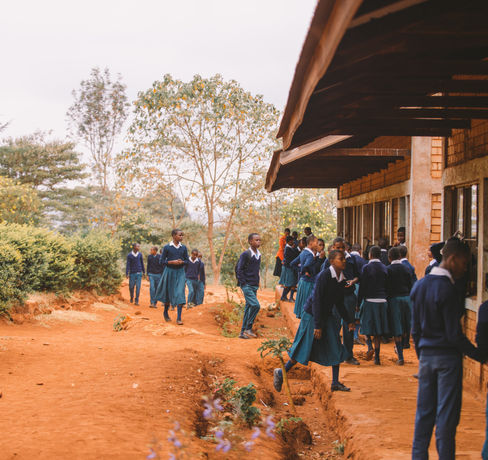top of page
About the programme

A brief overview of Mlimani
Mlimani Sumawe Secondary School is a public Ordinary Secondary School (non-boarding) in Karatu, Tanzania. Just next to the World Heritage Site of the Ngorongoro Crater, it is surrounded by stunning nature and culture. Its foundation was laid in 2007.
The school system in Tanzania is divided into the following:
-
2 Years of Pre-Primary
-
7 Years of Primary
-
4 Years of Ordinary Secondary School
-
2 Years of Advanced Secondary School
Mlimani has around 14 teachers for 300-500 students divided into the 4 Years (Forms), each split further into sets A, B and C. Sets have up to 50 students (boys and girls), and you will notice that their background varies a lot, resulting in a great mix of skill levels, especially in English. Depending on the pupils' family situation, they join the school at different stages, so ages vary as well (usually 12 - 18 years of age).
Learn more about the system here: https://africaid.org/

The volunteer programme
Kifaru Coffee Estate introduced the programme to support Mlimani's development. Two 90 day terms per year (January - Easter and late August - late November) a group of 4 volunteers is recruited to help with the lessons at the school. Volunteers made a small but helpful difference in the education of students and exchanged very valuable cultural experiences with the local teachers.
The Day Care Center
In addition to supporting Mlimani, Kifaru has also built its own nursery, to give mothers in the community more freedom in their daily lives. Around 50 children between the ages of three and six are cared for here, and this number increases during coffee picking season!









Kifaru Coffee Estate
Kifaru is a specialty coffee producer in the northern highlands of Tanzania. Its Education Foundation was set up to improve the lives of the people in the surrounding community.
As a volunteer, you will be living at the lodge of Kifaru Coffee Estate, meaning you will experience the daily routine on a Tanzanian coffee farm, and the people working on and around it. Our lovely staff is going to take care of you and other guests that might stay on the farm.
With its location right on the edge of the Ngorongoro Crater, it is also the ideal base camp to explore the beauty of this country. Not just the crater, but lakes, volcanoes and national parks like the Serengeti are right at your doorstep.
Learn much more about the place you will stay at: https://kifarucoffee.estate/
Is volunteering really a good thing?
As a farm, we know that recruiting 4 untrained volunteers will not solve many of the underlying issues of the Tanzanian educational system. The growing popularity of short-term volunteering, in order to have some kind of purpose while travelling, has coined the term 'voluntourism' and is often rightfully criticised. We want to address some points, in order to prevent our programme from joining this category:
1 : "Volunteers take local jobs"
Tanzania still has a massive teacher shortage. A few volunteers won't solve this, but it also won‘t hurt the local job market. Keep in mind that while teachers at Mlimani often appreciate the extra support, other aspects have a more significant impact.
2: "Unskilled volunteers aren't helping"
We mainly sent gap year students, with no prior teaching experience. However, we only accepted motivated students with a good secondary education. Freshly out of school themselves, we found that they often knew really well how to communicate with students, and how to pass on knowledge.
3: "It is just an excuse to travel"
Tanzania is perfect for safaris and experiencing new culture, and our volunteers will have a lot of fun during weekends. However, the programme expected them to commit to full school days and lesson preparation, which is a full time job 5 days a week.
4: "1 term isn't enough to make a difference"
Short-term volunteering is rightly criticised the most. Arguably, one term at a school also isn't really enough, but we have found that it is enough to understand Mlimani, and to form proper bonds with the people. This makes it worthwhile for both parties, instead of becoming a nuisance to Mlimani.
It's about the cultural exchange
Mlimani volunteers do very real and useful work at the school, and we wouldn't continue the efforts if that wasn't the case. Yet we want to emphasise that the cultural exchange is the key impact this programme has! Working with four new people with very different backgrounds each term, keeps the school on its toes, and gives the students a broader understanding of the world. Volunteers also take those same benefits from it, getting a real understanding of life in East Africa, on a genuine and personal level. This will spread a properly informed interest in the region, which will bear fruit.

bottom of page








































